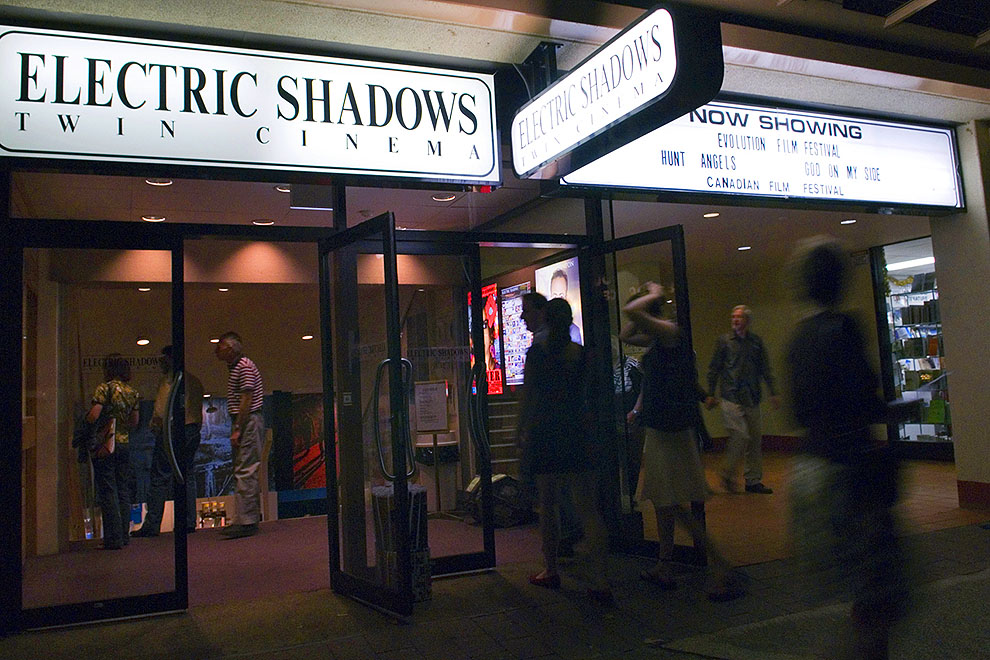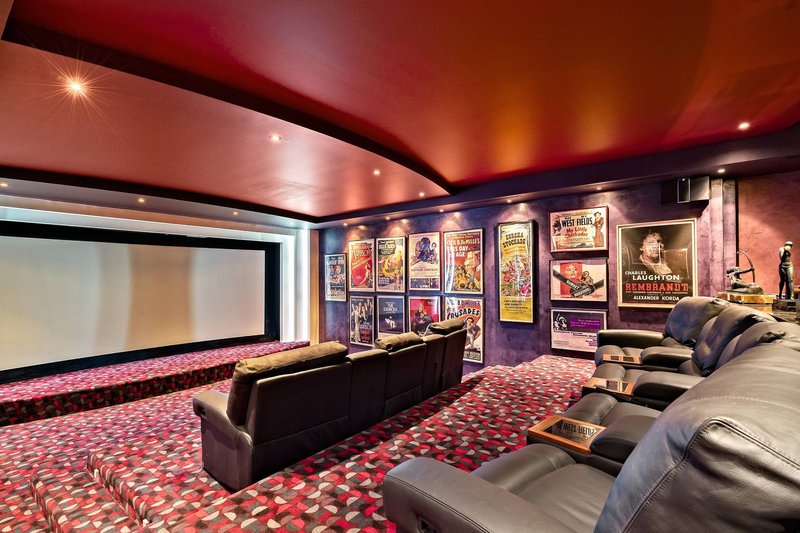
The Electric Shadows often showed foreign films and documentaries. Photo: Ronin Cinema.
I feel sorry for young Canberrans who have never seen a $6 film at the Cosmopolitan Twin or impressed their smart friends by watching a foreign epic at Electric Shadows.
Sure, there’s now a lot more choice for moviegoers in the capital than when I grew up here in the 1990s. But there was an edgy feeling to our old local independent cinemas that you don’t get from a Hoyts, Palace or Dendy.
The Cosmopolitan Twin Cinema operated next to Woden Shopping Centre between 1984 and 2000. As a teen, I would regularly go to their ‘’Cheapskate Tuesday’’ sessions, when all movies were half price. It was the highlight of my week, especially for those eight long months between Summernats and Floriade when there was nothing else to do in town.
It was particularly exciting for my schoolmates circle that attended the all-boys Marist College, because it was the only time we’d see girls who weren’t our sisters.
No, we never took girls to the movies, we were too clueless to approach them. But we looked on with envy at the cool Melrose High boys and their dates.
The first film I saw at the Cosmo was The Silence of the Lambs in 1991, a truly frightening experience. But the terror didn’t stop when the curtains rolled, as I then knew I’d have to take the bus home at 9 pm from the Woden interchange.

The Cosmo Twin offered movies for as little as $6. Photo: Cinema Treasures.
Thirty years ago, Woden felt like a scene from the movie Death Wish once dark descended. Buses would only arrive on an hourly basis, and while in a sparsely populated shelter, you’d be approached by all manner of characters wanting to sell you drugs, bum a cigarette, ask for spare change or start a fight. The adrenaline would be pumping right until you made it to your front door.
As an adult, I’ve lived in supposedly dangerous cities like San Salvador and Quito, but never quite experienced the fear I felt at the Woden bus interchange as a 15-year-old.
Nevertheless, movie nights out with mates were great – affordable and filled with adventure.
By the time I went to ANU in the mid-1990s, I found my peers looked down on me for wanting to see commercial blockbusters like Die Hard and Lethal Weapon in the ”deep south”.
My classmates at uni were all going to the Electric Shadows Twin, a highbrow, independent cinema that was open in Akuna Street in the city between 1973 and 2006, where it showed foreign language dramas, documentaries and feel-good feminist flicks.

The Electric Shadows facade was recently resurrected for a Reid property. Photo: Zango.
The set-up there was magical – bright-red carpet, murals, classic movie posters, and 1920s decor and furniture. The foyer was the perfect place to unwind and workshop the Pedro Almodovar film we just saw, which I would pretend I understood.
Also, attached to the theatre was a bookshop where I could buy intellectual literature I would never read.
Sadly, Almodovar’s melodrama Volver was the last film ever shown at this cinema. A nostalgic short documentary about Electric Shadows, released in 2009, preserved the memories.
As Netflix, Stan and multiplex cinemas dominate the movie landscapes today, those of us old enough to benefit from kitsch independents such as the Cosmo and Electric Shadows will hold on to those memories forever.













